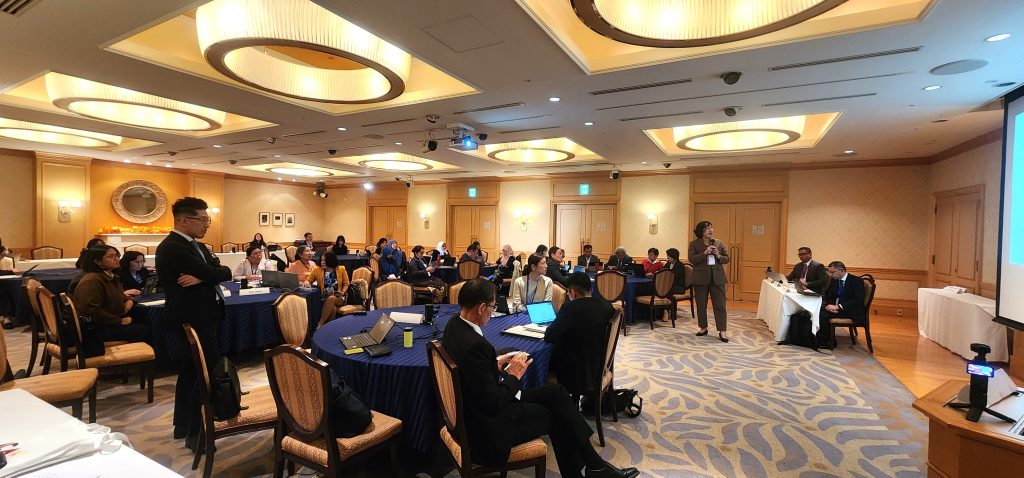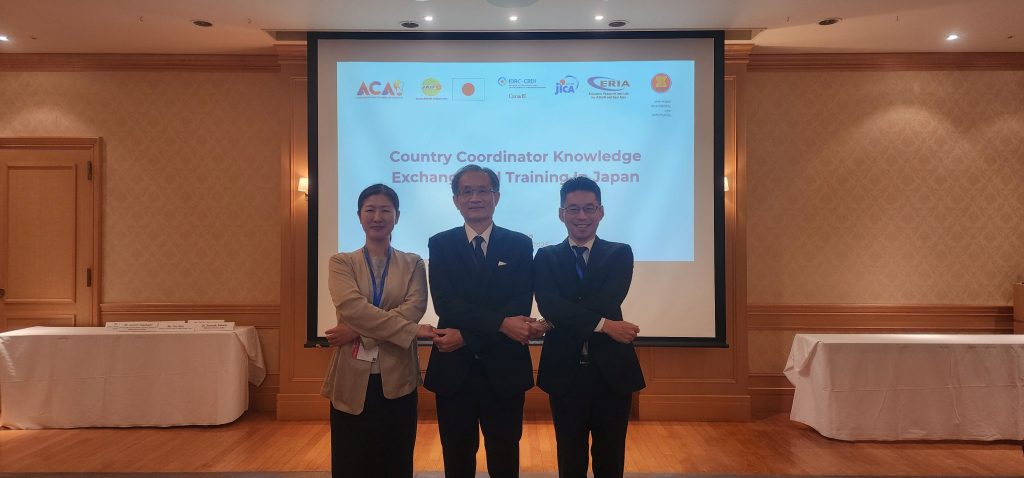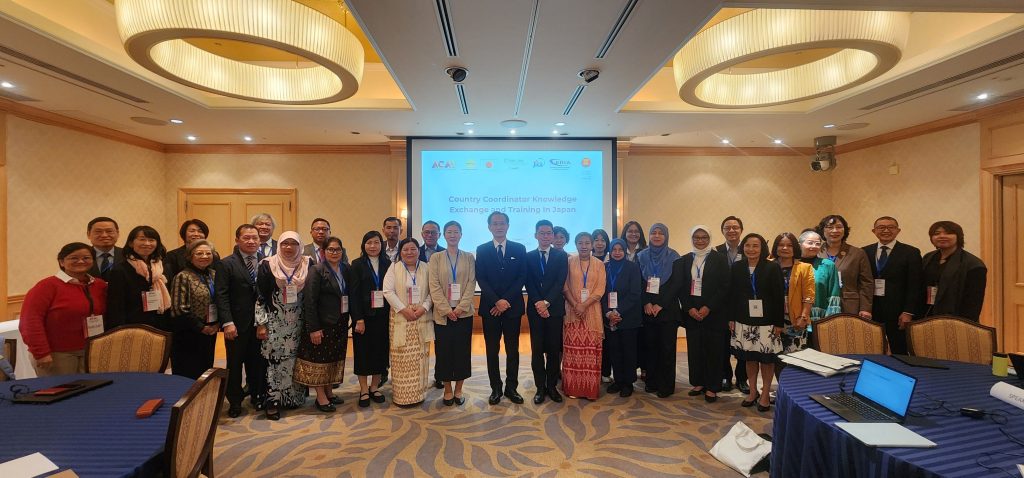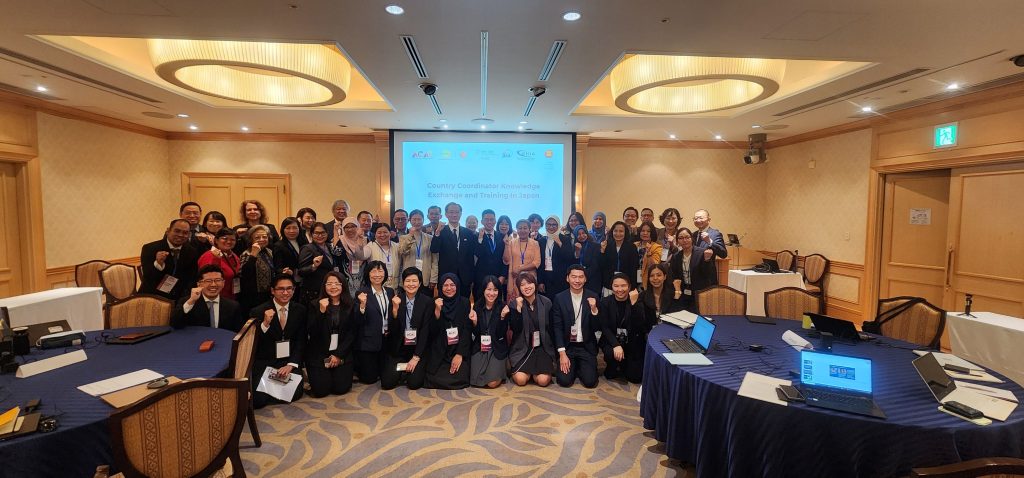
NARITA, JAPAN — The collaborative vision for an inclusive and resilient ASEAN took a significant step forward as the ASEAN Centre for Active Ageing and Innovation (ACAI) convened the Country Coordinator Knowledge Exchange and Training in Narita, Japan, from October 27–30, 2025. Following the successful Regional Action Plan Drafting Workshop in Bangkok, this critical meeting served as the mechanism to deepen country-level engagement and translate the regional ambition of the Regional Action Plan on Active Ageing (RAP) into concrete national roadmaps. ACAI organised the training in Japan with support from the Japan-ASEAN Integration Fund (JAIF), International Development Research Centre (IDRC), and Japan International Cooperation Agency (JICA).
The Bangkok workshop in September laid the groundwork by aligning with ACAI’s 5-Year Strategic Plan (2025–2029) and exploring the four thematic pillars of Active Ageing: Health, Economic and Financial Security, Social Participation, and Environment. The training in Narita built on this foundation, allowing Country Coordinators (CCs)—the national ageing focal points nominated by each ASEAN Member State —to clarify their distinct national priorities. The core purpose was to ensure that the diverse contexts and needs of all ASEAN Member States are fully reflected in the draft Regional Action Plan, which will be technically robust and regionally owned.
Country Coordinators were tasked with translating their priorities, challenges, and opportunities identified in Bangkok into both short-term and long-term action roadmaps. By refining these national plans, the program works to embed ageing priorities within national systems and policies, aligning them with universal health coverage and stronger health security. Ultimately, this crucial process seeks to recognise older persons across ASEAN not just as beneficiaries of social protection, but as active contributors to resilient, inclusive, and sustainable societies.
The four-day program was anchored by two main parts: a high-level panel discussion and country presentations. On Monday, October 27, the opening session included welcoming remarks from Dr. Somsak Akksilp, Executive Director of ACAI, and representatives from the Japan International Cooperation Agency (JICA) and the Ministry of Health, Labour and Welfare, followed by an overview of the workshop’s objective and an ACAI update on the Regional Action Plan. The subsequent Round Table: Advancing Active Ageing in Asia, moderated by Dr. Reiko Hayashi from the National Institute of Population and Social Security Research (IPSS), gathered regional leaders to share best practices, lessons learned, and innovative approaches.
Following the roundtable, Country Coordinators from Thailand, Viet Nam, Indonesia, Malaysia, Singapore, and Brunei Darussalam presented their defined priorities and specified actions within the four thematic pillars. On Tuesday, October 28, presentations from the Philippines, Cambodia, Lao PDR, and Myanmar completed the country-level input. The day culminated in a Wrap-Up Session to consolidate key messages and a closing remark by Dr. Somsak Akksilp.
A unique feature of the Narita training was the collaborative engagement with the 23rd ASEAN–Japan High-Level Officials Meeting on Caring. On Wednesday, October 29, a Joint Field Visit mixed participants from both meetings into two groups for a site visit. Activities included experiencing a VR/AR and health equipment exhibition, attending a presentation by a HAPI Award winner, and visiting either a Special Nursing Home for the Elderly, a Geriatric Health Services Facility, or the International University of Health and Welfare (IUHW) Narita Hospital.
The final day, Thursday, October 30, featured a Joint Workshop that included a National Transfer Accounts (NTA) Workshop and an Overall Summary session. This session consolidated recommendations from both the HL meeting and the ACAI Workshop, concluding with the Adoption of the Joint Declaration and a farewell lunch.
With the Narita workshop concluding, ACAI moves to the next phase in the RAP’s evolution, which is set to proceed to PMAC 2026 for follow-up and peer exchange. To monitor progress, the ASEAN Active Ageing Index (AAAI) will be applied as a core component of ACAI’s monitoring framework, evaluating each country’s ageing status and measuring changes across key domains over time. Guided by frameworks like the UN Decade of Healthy Ageing (2021–2030) and translating megatrends like digitalisation and climate resilience into action, the training successfully enabled Country Coordinators to move the preliminary RAP closer to becoming the definitive plan for a healthy and active future for the ASEAN region.
###




